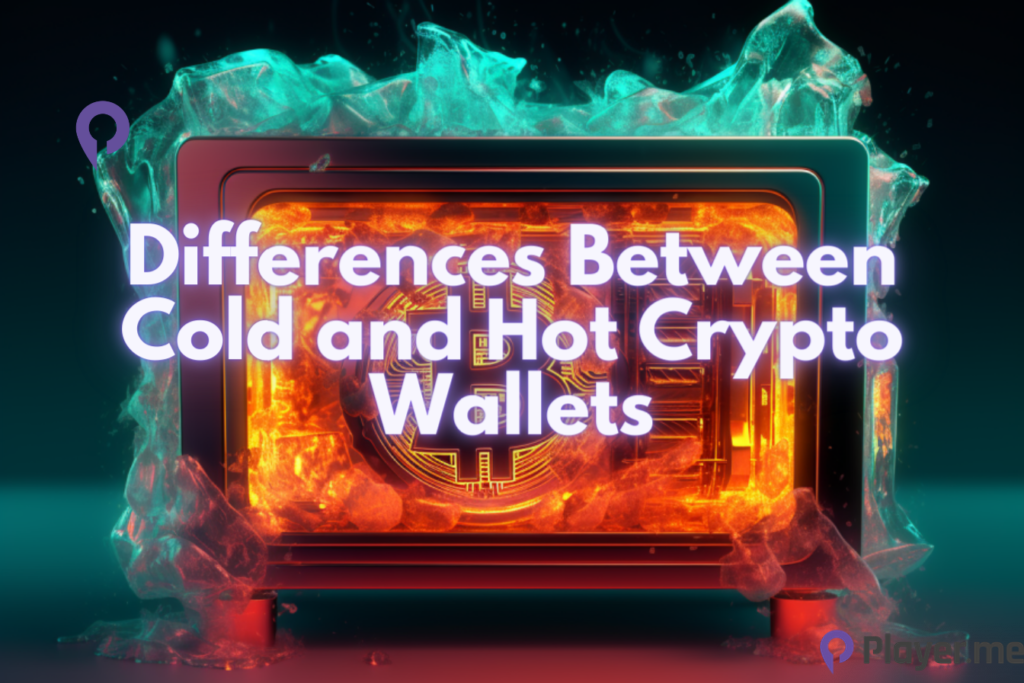Major Points:
- When it comes to cryptocurrencies, the two most popular types of storage options are hot and cold wallets.
- Hot wallets have internet connectivity and are based online. Cold wallets, on the other hand, are physical devices such as USB pen drives which are offline.
- While hot wallets offer a higher degree of user-friendliness and convenience, cold wallets offer more security as they are not susceptible to hacking.

Users who buy any amount of cryptocurrencies have the choice of choosing either a hot wallet or a cold wallet to store them. They are essential for anyone trying to keep their cryptos safe from unauthorised access. The main difference between the two wallets is the way they connect. While both types of wallets are different in the way they work, they both have the same aim- protecting public and private keys, which are the cryptographically generated collection of numbers and letters that are used to authorise crypto transactions.
Also read : Ethereum’s New All-Time High: Layer-2 solutions, Liquidity Provision and Unmasking the Giant in ETH
What Are Hot Wallets?
Hot wallets are crypto wallets with internet connectivity, offering storage and exchanging of tokens while also serving as a place where users can view their tokens in a comprehensive place. They can be accessed from cellular phones, laptops, tablets and other internet-enabled devices. They have become popular due to their user-friendliness and ease of transferring.
There are many types of hot wallets such as mobile applications, ecosystem-specific wallets and web-only wallets. Edge, Robinhood, Exodus Wallet, Trust Wallet and MetaMask are some of the most common examples of hot wallets.
Pros and Cons of Hot Wallets
Pros
- Since hot wallets are connected to the internet, users can perform several activities easily and from a collection of different devices.
- Some hot wallets are absolutely free to use while others require interest payments on the stored cryptocurrencies.
Cons
- Those hot wallets which are unencrypted are susceptible to hacks as they are always connected to the internet. `
- Some hot wallets can only be accessed and used in specific locations due to restrictions in place.
What Are Cold Wallets?
Cold wallets come as physical devices which are not connected to the internet. This makes them less susceptible to hacking. They have been getting increasingly popular since hacking instances are on the rise, as evidenced by the collapse of the FTX exchange. They are usually hardware devices which keep the private keys completely offline.
There are different types of cold wallets available such as paper wallets, hardware wallets and deep cold storage. Of these, hardware wallets are the most popular types, which come in the form of USBs or smart cards. Some common examples of this type of wallet include KeeKey, Ledger and Trezor.

Pros and Cons of Cold Wallets
Pros
- Cold wallets have enhanced security protocols on account of being physical devices and are thus better protected against hacking and other cyber threats.
- Cold wallets give the user full possession and control over their private and public keys.
- The devices are durable and portable.
Cons
- On account of being a physical device, users can easily misplace them if they aren’t careful.
- Cold wallets are priced on the higher side, ranging anywhere from $50 to $200.
- Many users can find it difficult to use.
How to Choose Between a Hot Wallet and a Cold Wallet?
When choosing between two hot and cold wallets, users should consider several factors such as the following.
- Frequency of Usage
For users planning on using their crypto frequently, a hot wallet might be a better choice. They can easily be switched on and provide easy navigation and a user-friendly interface. On the other hand, cold wallets are ideal for long-term holders who do not have use for cryptos so frequently.
- Security Protocols
Cold wallets are considered more secure because of their offline nature. This makes them almost invincible against hacking and other similar cyber threats. While many people prefer the convenience that hot wallets provide, they are connected to the internet at all times, which makes them susceptible to a number of online threats.
- Amount of Cryptocurrencies
Some traders have a large holding of diverse cryptocurrencies which can be difficult to handle and store. A cold wallet is ideal for such situations as it comes with added security protocols. On the other hand, a hot wallet can be useful if one is dealing with fewer crypto holdings.
Conclusion
Cold wallets and hot wallets provide different advantages and the choice depends on the user’s needs and preferences. Many traders use a combination of hot and cold wallets to store their crypto funds. This not only guarantees security but also provides users with the flexibility that comes with both types of wallets.

Frequently Asked Questions
Are Hot Wallets More Secure Than a Cryptocurrency Exchange?
Keeping crypto funds in a hot wallet is safer than keeping them in an exchange account. Many exchanges have suffered from cyber-attacks in the past where user funds have been compromised.
Can Cryptos Be Transferred from a Cold Wallet to a Hot Wallet?
Yes, it is possible to transfer between a cold wallet and hot wallet. Users need to connect the hardware device to another device which has internet connectivity.
Can a Cold Wallet Be Hacked?
Cold wallets cannot be hacked remotely. However, the chances of unauthorised access increase if the PIN and the physical device are stolen.





